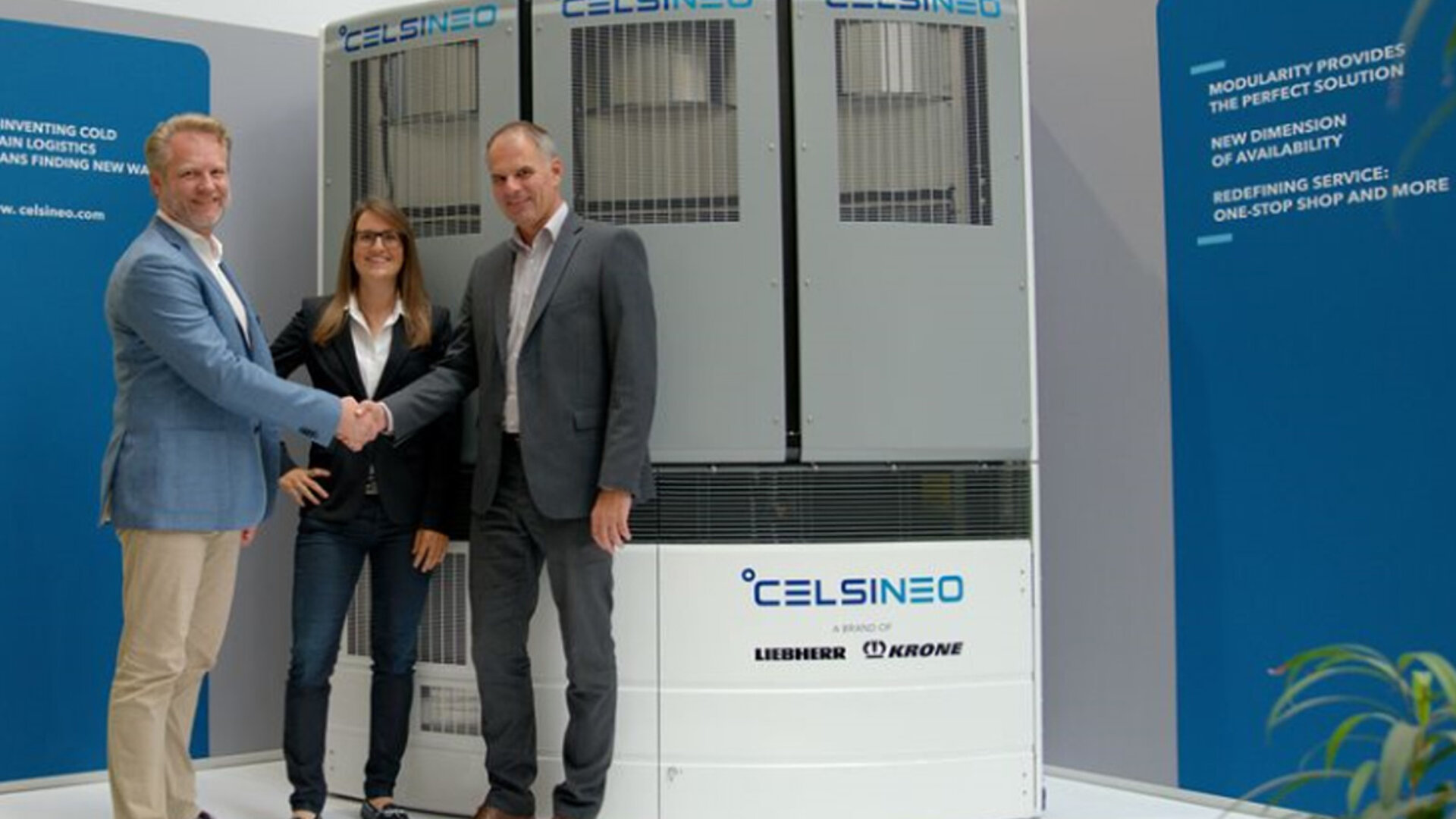
The transport of goods in refrigerated trucks is now more reliable and efficient thanks to cooperation between the Vienna University of Technology, Liebherr-Transportation Systems GmbH & Co KG and Fahrzeugwerk Bernard Krone GmbH.
A large proportion of the fresh food we buy at the supermarket has to be delivered by refrigerated lorries, but this has its disadvantages. Refrigeration needs energy, which causes CO2 and pollutant emissions, and if it fails, food often has to be thrown away. There are about a million refrigerated trucks in the EU, so there is great potential for improvement and savings in this area. In cooperation with Liebherr and Krone, an improved cooling system with a completely new control concept has now been developed at the Vienna University of Technology. This is intended to make refrigerated transport more reliable, more economical and more efficient.
Triple reliability
"The core of the new CELSINEO cooling system is that we not only use one large cooling unit, as was the case up to now, but three small cooling modules," says Elisabeth Luchini, who researched the project as part of her dissertation with Prof. Martin Kozek (Institute of Mechanics and Mechatronics, TU Vienna). "In this way, we increase reliability. Even if one of the three modules fails, the freight can still be kept cool."
At the same time, however, this means that there are various options for controlling the cooling system and that complicated optimization problems have to be solved: Should one of the cooling modules run at full load and the other two contribute only little? Or is it better to distribute the load evenly? If you know that the outside temperature will change in the course of the day - can you take this into account when controlling the cooling system? In addition, there are other things you want to optimize - such as the volume, especially when unloading in the city, where the noise could be annoying, or the wear and tear of the refrigeration compressors.
"This is precisely what makes the task interesting from a control engineering point of view: one pursues a combination of different optimization goals that sometimes contradict each other," says Martin Kozek. For example, it is not good for the refrigeration compressor if it is switched on and off too often, because it is precisely the first revolutions at start-up that cause the greatest wear. This is precisely why forward-looking control technology is so important: the system should be able to predict as accurately as possible how the temperature and operating requirements will develop in the near future so that it will not be necessary to constantly readjust, but can plan for the longer term.
Patented and tested
A non-linear system was developed, which calculates the optimal action strategies from sensor data and given requirements - on the basis of a forward-looking mathematical model - and controls the cooling modules accordingly.
In the course of the project, three patents were registered for the new control concept. Following international field tests, the new CELSINEO brand was presented by development partners Liebherr and Krone. With its unique concept, CELSINEO represents a new class of cooling systems for trailers. The advantages are obvious: "We measure a significant reduction in temperature fluctuations in our system," reports Elisabeth Luchini. "And due to the triple cooling, the reliability and application flexibility is much greater - this redundancy is a unique selling point of CELSINEO that no competitor can offer yet".
More: TU Wien
Contact
Ute Braam
Corporate Communications
Liebherr-Aerospace & Transportation SAS
Pfänderstraße 50-52
88161 Lindenberg
Germany
Tel +49 8381 46-4403
Fax +49 8381 46-5652
E-Mail: ute.braam@liebherr.com
Stefan Oelker
Fahrzeugwerk Bernard Krone GmbH
Bernard-Krone-Str. 1
49757 Werlte
Germany
Telefon: +49 5951 209-211
E-Mail: stefan.oelker@krone.de
Dr. Elisabeth Luchini
Institut für Mechanik und Mechatronik
Technische Universität Wien
Getreidemarkt 9, 1060 Wien
T +43-1-58801-325527
elisabeth.luchini@tuwien.ac.at
Prof. Martin Kozek
Institut für Mechanik und Mechatronik
Technische Universität Wien
Getreidemarkt 9, 1060 Wien
T +43-1-58801-325512
martin.kozek@tuwien.ac.at